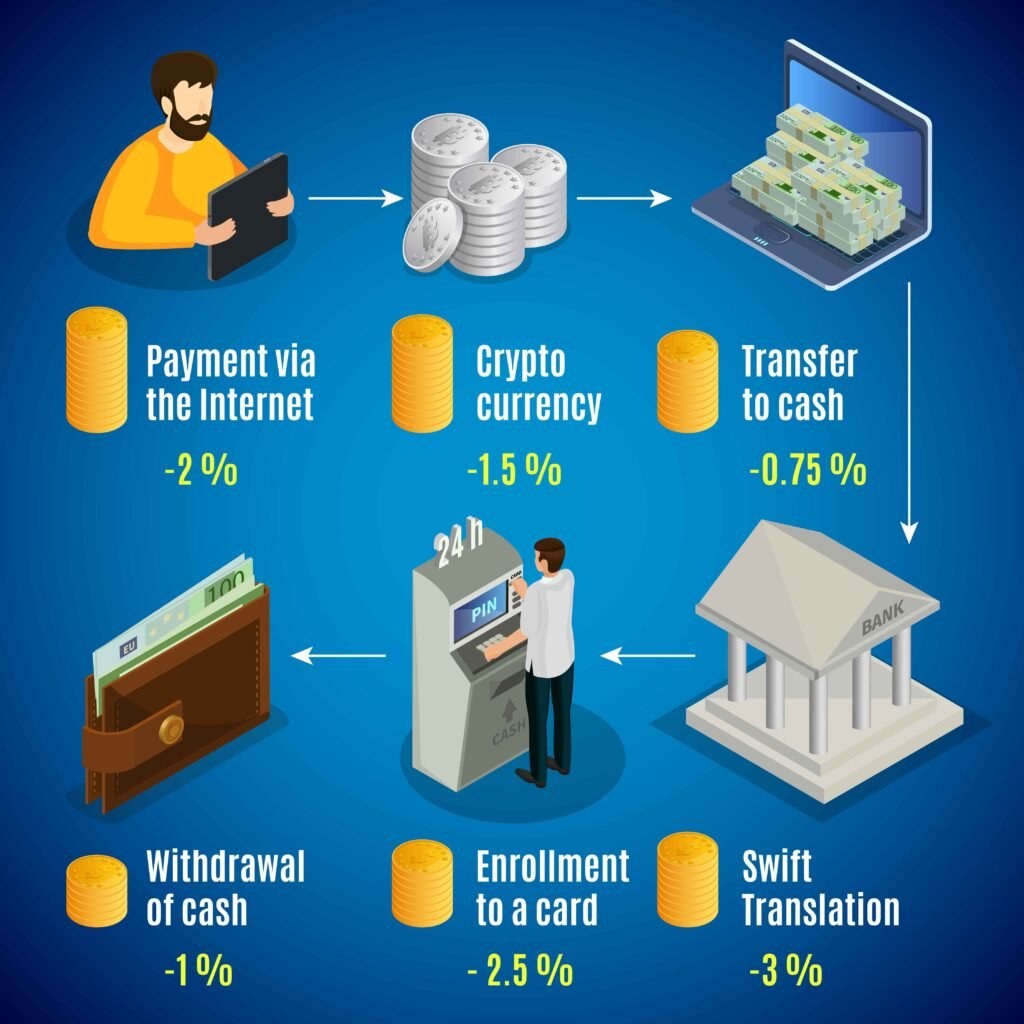Cryptocurrency, a digital or virtual form of money, has revolutionized the financial landscape. It operates on a technology called blockchain, which ensures transparency and security. However, a common question arises; who controls cryptocurrency? Unlike traditional currencies controlled by central banks, but, cryptocurrency are usually not issued or controlled by any government or other central authority. . This article delves into the various elements and entities that influence and control the cryptocurrency ecosystem.
The Role of Blockchain Technology
Blockchain technology is the backbone of cryptocurrency; it is a distributed ledger that records all transactions across a network of computers. The decentralized nature of blockchain ensures that no single entity has complete control over the entire network. Instead, control is distributed among all participants.
How Blockchain Works
A blockchain is a chain of blocks, each containing a list of transactions. Once a block is added to the chain, it is nearly impossible to alter, ensuring the integrity and security of the data. This immutability is a key feature that makes blockchain technology trustworthy.
Decentralization and Its Implications
Decentralization means that the power and control are spread out rather than concentrated in a single authority. This feature is crucial for the operation of cryptocurrencies, as it prevents any single point of failure and reduces the risk of manipulation or fraud.
Miners: The Backbone of Cryptocurrency Networks
Miners play a pivotal role in the cryptocurrency ecosystem. They validate transactions and add them to the blockchain, earning new coins as a reward for their efforts. Check our previously published article on how to choose the right crypto wallet.
Mining Process
Mining involves solving complex mathematical problems that require significant computational power. When a miner successfully solves a problem, a new block is added to the blockchain, and the miner is rewarded with cryptocurrency. This process is known as proof of work.
Impact of Miners on Control
Miners hold substantial influence in the cryptocurrency network. The distribution of mining power can affect the security and stability of the blockchain. If a single entity or group controls more than 50% of the mining power, they could potentially manipulate the network, an event known as a 51% attack.
Developers: Shaping the Future of Cryptocurrencies
Developers are the architects of cryptocurrency. They create and maintain the software that runs on the blockchain, ensuring its functionality and security.
Open-Source Development
Most cryptocurrencies operate on open-source software, meaning anyone can view, modify, and contribute to the code. This openness fosters innovation and allows for continuous improvement of the technology.
Governance Models
Different cryptocurrencies have various governance models that dictate how decisions are made regarding protocol changes and upgrades. For instance, Bitcoin follows a consensus model where changes are proposed and agreed upon by the majority of the network participants. Ethereum, on the other hand, has a more formal governance structure involving the Ethereum Foundation and core developers.
Crypto Exchanges: Gatekeepers of the Cryptocurrency Market

Cryptocurrency exchanges are platforms where users can buy, sell, and trade cryptocurrencies. They play a critical role in the market by providing liquidity and facilitating transactions. Check our previously published article on Best Cryptocurrency To Invest In 2024.
Types of Exchanges
- Centralized Exchanges (CEX): These are managed by a central authority and are responsible for the security and operation of the platform. Examples include Binance, Coinbase, and Kraken.
- Decentralized Exchanges (DEX): These operate without a central authority, allowing peer-to-peer trading directly between users. Examples include Uniswap and SushiSwap.
Influence of Exchanges
Exchanges can significantly impact the cryptocurrency market. They determine which cryptocurrencies are listed, affecting their accessibility and popularity. Additionally, they set the rules for trading, such as transaction fees and withdrawal limits, which can influence market behavior.
| Type of Exchange | Examples | Control | Key Features |
|---|---|---|---|
| Centralized | Binance, Coinbase, Kraken | Central authority | High liquidity, user-friendly |
| Decentralized | Uniswap, SushiSwap | Peer-to-peer, no central control | Enhanced privacy, security |
Government Regulations and Their Impact
While cryptocurrencies are designed to operate independently of central authorities, governments around the world have an increasing interest in regulating the crypto space. These regulations can have profound effects on the control and operation of cryptocurrencies.
Regulatory Approaches
Different countries have adopted various approaches to cryptocurrency regulation:
- Prohibition: Some countries, like China, have banned cryptocurrency trading and mining activities.
- Regulation and Taxation: Countries like the United States and Japan have implemented regulatory frameworks to oversee crypto exchanges, require KYC (Know Your Customer) processes, and crypto tax transactions.
- Innovation-Friendly: Some countries, such as Malta and Switzerland, have created favorable regulatory environments to attract crypto businesses and innovation.
Impact on Control
Government regulations can influence the control of cryptocurrencies in several ways:
- Market Access: Regulations can determine who can participate in the crypto market and under what conditions.
- Compliance Requirements: Exchanges and other crypto-related businesses must comply with regulatory standards, which can affect their operations and the services they offer.
- Legal Clarity: Clear regulations can provide legal certainty, encouraging more mainstream adoption and investment in cryptocurrencies.
The Influence of Institutional Investors

Institutional investors, including hedge funds, pension funds, and publicly traded companies, have increasingly entered the cryptocurrency market. Their involvement brings significant capital and can influence market dynamics.
Impact on Market Stability
Institutional investments can add liquidity to the market, potentially reducing volatility. However, large-scale movements by these investors can also lead to significant price swings.
Influence on Market Perception
The entry of institutional investors into the cryptocurrency market lends credibility and legitimacy, attracting more mainstream interest and potentially leading to broader adoption.
The Power of the Crypto Community
The cryptocurrency community, comprising developers, miners, users, and enthusiasts, plays a vital role in the control and development of cryptocurrencies. This community-driven approach is one of the unique aspects of the crypto ecosystem.
Community Governance
Many cryptocurrencies have community governance models where stakeholders can propose and vote on changes to the protocol. This democratic approach ensures that no single entity has disproportionate control over the network.
Social Media and Influence
Social media platforms like Twitter, Reddit, and Telegram are powerful tools for the crypto community. They enable the rapid dissemination of information, coordination of activities, and mobilization of support for various projects and initiatives.
Conclusion
In conclusion, the control of cryptocurrency is a complex and multifaceted issue. It involves a diverse array of players, including blockchain technology, miners, developers, exchanges, government regulators, institutional investors, and the broader crypto community. Each of these elements contributes to the decentralized nature of cryptocurrencies, ensuring that no single entity holds absolute control.
This decentralized structure is both the strength and challenge of the crypto ecosystem, fostering innovation, security, and resilience while also presenting unique regulatory and operational complexities. As the cryptocurrency landscape continues to evolve, understanding the roles and influences of these various players will be crucial for navigating this dynamic and rapidly changing market.


